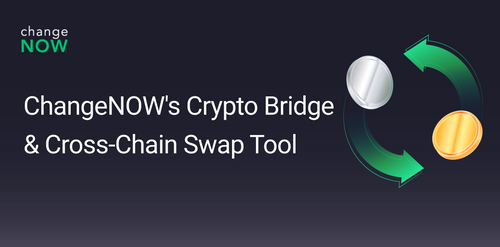How Crypto Partners with Sport to Help Adoption
But that’s exactly what happened – the Los Angeles Lakers’ Staples Center is now called the Crypto.com Arena, and the name will remain for at least 20 years.
This is just one example of a major trend – the increasing scale of cryptocurrency and sports partnerships. There are partnerships worth hundreds of millions of dollars, football teams’ fan tokens, NFT collections, and even metaverses. According to the Nielsen Sports analytical company, investments in sports made by automotive companies will grow by 5% from 2021 until 2026, while for crypto, it will be a 778% surge, reaching $5 billion.
But why do crypto companies spend money on sports, and why do the latter engage with crypto?

Both Profit
By partnering with sports, cryptocurrency companies accelerate community building and reach new audiences. Better recognition allows them to create the potential for coins’ value growth.
The sports industry is centuries old. Billions of people worldwide watch matches, and millions are fans of their local teams. By entering this space, cryptocurrency improves its reputation and changes its public perception: people start trusting the cryptocurrencies promoted by the teams they already trust.
By partnering with crypto projects, sports companies raise money that they need, which is especially relevant following the pandemic that cut their incomes. Besides simply receiving sponsor money, sports clubs and leagues monetize their fan engagement by introducing team tokens and NFT collections.
Such cooperation is already paying off: according to stats, sport fans report being familiar with crypto two times more often than non-sport fans. Many sportsmen receive salaries in Bitcoin, invest in digital assets, and personally promote them.
Sponsorships
The biggest category of sports-cryptocurrency collaboration is sponsorship. Here’s a typical example: Manchester United F.C. signs a multi-year $27 million contract with Tezos, and the platform’s logo appears in the warm-up jerseys worn by the players before matches.
Contracts of this kind are most commonly signed between large centralized crypto services and American football or soccer organizations:
- OKX, previously known as OKEx, has announced a deal with Manchester City F.C. The OKX in-stadium branding will emerge in two arenas in Manchester.
- Binance sponsored the TotalEnergies Africa Cup of Nations (AFCON 2021) and the Argentine Football Association in recent months.
- FTX, Crypto.com, and Coinbase spent $6.5 million for 30-second ads broadcasted during the America’s Super Bowl LVI in 2022. Running commercials during the game is the way to reach out to enormous audiences, so companies do their best to make them inspiring pieces of art. Follow the links to take a look at these ads.
Other kinds of sports do not fall behind:
- Basketball. As mentioned above, Crypto.com has signed a $700-million deal to rename the Staples Center, home to the LA Lakers, to Crypto.com Arena. Coinbase partnered with the NBA to place its logos on players’ shirts.

- UFC. Crypto.com has also signed a $175-million contract to print its name on the apparel worn by UFC fighters.
- Formula 1. Tezos sponsored McLaren Racing that runs teams in F1, Fantom invested in the Scuderia AlphaTauri team, and even a meme coin Floki Inu gave money to the Alfa Romeo F1 team.
Team Tokens for Fan Engagement
In addition to sponsorship, there are a few types of crypto-sports integrations that help the latter raise money, drive fan engagement, and improve relationships with the teams. One such type is a crypto token issued for a specific sports team, like Manchester City (CITY), Barcelona (BAR) and Juventus Fan Tokens (JUV). These tokens allow fans to:
- Buy tickets and exchange any other team-related value,
- Vote on club matters,
- Receive discounts on merchandise,
- Build engagements in the fan community,
- Even choose which song is played when the team scores a goal.
Sports clubs that have issued their fan tokens include Atlético Madrid, Arsenal, FC Barcelona, Paris Saint-Germain FC, AC Milan, Juventus, AS Roma, and Lazio. Only CITY, BAR, and JUV tokens alone helped their teams raise over $300 million.

Manchester City Fan Token logo. Image source
However, some fan token campaigns don’t go smoothly. For instance, in the UK, two Arsenal promotions were banned, because they were “misleading supporters over the risks of investing in cryptocurrencies” and “taking advantage of consumers’ inexperience or credulity”. The Arsenal club ordered an independent review of the order to clarify the authorities’ stance.
NFT for the Sense of Belonging
Why are NFTs so popular? One of the key reasons is the sense of ownership they provide: even if it’s a simple JPEG picture, it feels different if you know you own it and it’s recognized by others. For sport fans, this feeling is reinforced by the sense of belonging to the team or the brand. In turn, for sports companies, NFTs offer extra monetization and reachout to new audiences.
One of the best examples of sport NFTs is NBA’s Top Shot – a collection of officially licensed videos from the best game moments featuring top basketball players. The tokens were minted in collaboration with Dapper Labs – a company that released the legendary CryptoKitties back in 2017. The collection reached over $230 million in trading volume, and the reason for this success is simple: the NBA just put some best moments together, and the fans pay to enjoy “owning” the Tops Shots.

Another example is Kemper Snowboards – a brand that started promoting snowboarding back in 1980. Today, the company is again at the forefront of the industry: it’s planning to issue an NFT collection that pays homage to the 1980-s by featuring retro-styled snowboards.
Jib Hunt, CEO of Kemper, said: “It’s time to marry the digital and physical universes among collectibles and products. The value of owning a digital NFT that is tied to a physical product — snowboards, in our case — is the next evolution of NFTs.”

One of the possible Kemper NFTs. Image source
An elegant set of NFTs was introduced by the Roland Garros tennis tournament, for which this is the first integration with crypto. It has issued a collection of seats located in the virtual Philippe-Chatrier court. "RG Game, Seat & Match" was minted on Polygon, and everyone can buy one of 5,000 unique chairs starting from €2,000. The NFT owners can support their favorite players by changing the seat color, interact with the community, and participate in a physical match ball giveaway.
There are many other examples of sport NFTs. For instance, a fantasy football blockchain game Sorare features football players’ cards, and gamers can build teams, play matches, and earn rewards. The cards are officially licensed by the clubs, FC Bayern Munich was the latest one to join.
Metaverse for Expanded Opportunities
In partnership with Sony, Manchester City F.C. is creating the world’s first metaverse football stadium. In this immersive world implemented with AI and AR technology, those fans unable to visit the team’s matches will get the opportunity to watch them online – and this experience will not be far from the real one. Image analysis and skeletal-tracking technology will allow fans to look at the field from different angles and even watch past matches. “There’s not one broadcast point of view, you can look at it through any angle of the stadium. The sky's the limit”, says Nuria Tarre, City Football’s Group chief of marketing and fan engagement officer.

The Manchester City Etihad Stadium in the metaverse. Image source
Does the Crypto Crash Threaten Sports Partnerships?
Cryptocurrencies are no stranger to regular collapses, and this leads to certain predicaments. The latest one followed the notorious Terra crash: The Washington Nationals baseball team had a five-year, $38.15 million contract to promote LUNA and had already received money for it. The name of the coin was placed at every seat and elsewhere in the stadium. After Terra has plummeted, there are intense discussions on the future of the contract: no one wants to be associated with a failed project.
The recent drop of crypto has sparked talks in the entire industry: many existing partnerships are being questioned, while other sports companies may be afraid of signing new deals. One of the opinions is that the new regulations, soon to be introduced by the US Treasury, may insure the crypto-sports contracts from big losses.
Crypto for Sports: Not Only Arenas and Prestigious Clubs
We outlined the trends and listed some of the most notable partnerships that will indeed foster the adoption of digital money. However, sports and crypto aren’t only huge contracts and top-level commerce. They are also about empowering those who have poor access to banks.
In El Salvador, there is a Bitcoin Beach – a surfing hotspot that allows unbanked citizens and businesses to establish a local crypto economy not relying on banks.

A shop at the El Salvador Bitcoin Beach. Image source
The impact of cryptocurrency is multidimensional, it offers dozens of various use cases, including those for the sports industry. As global awareness of digital coins grows, we may see many new exciting integrations of crypto and sports emerge – those we couldn’t even imagine before.



